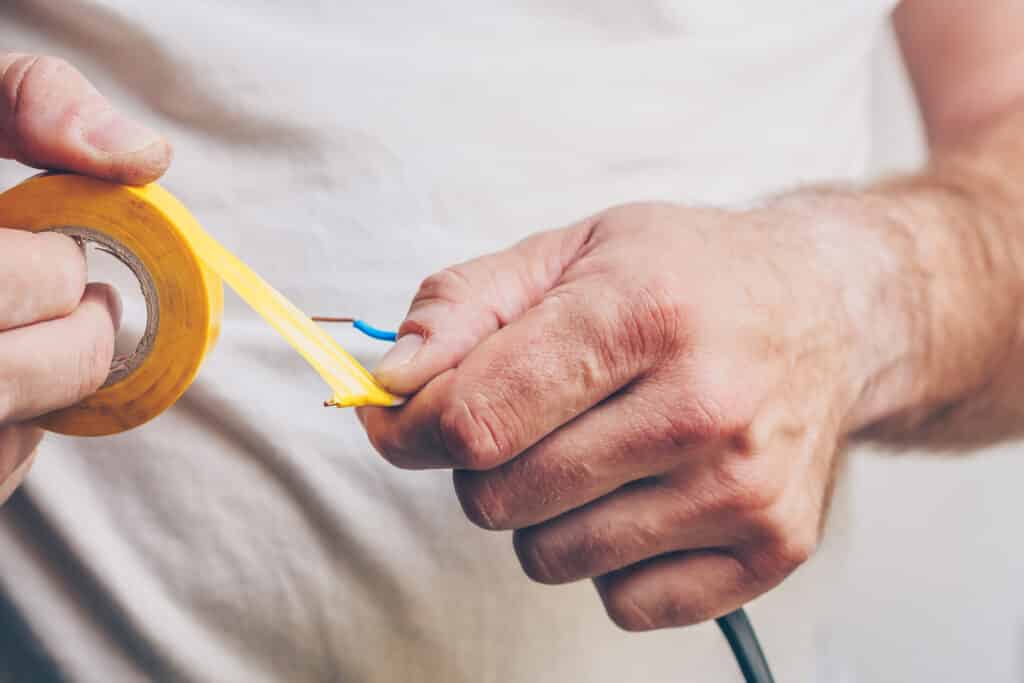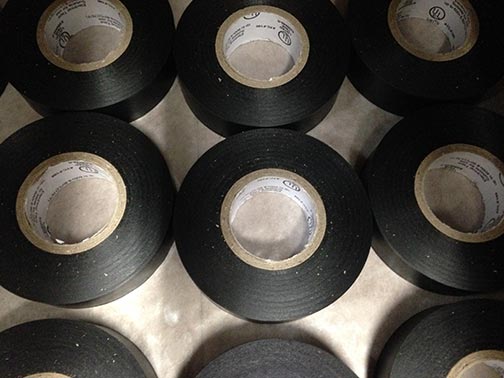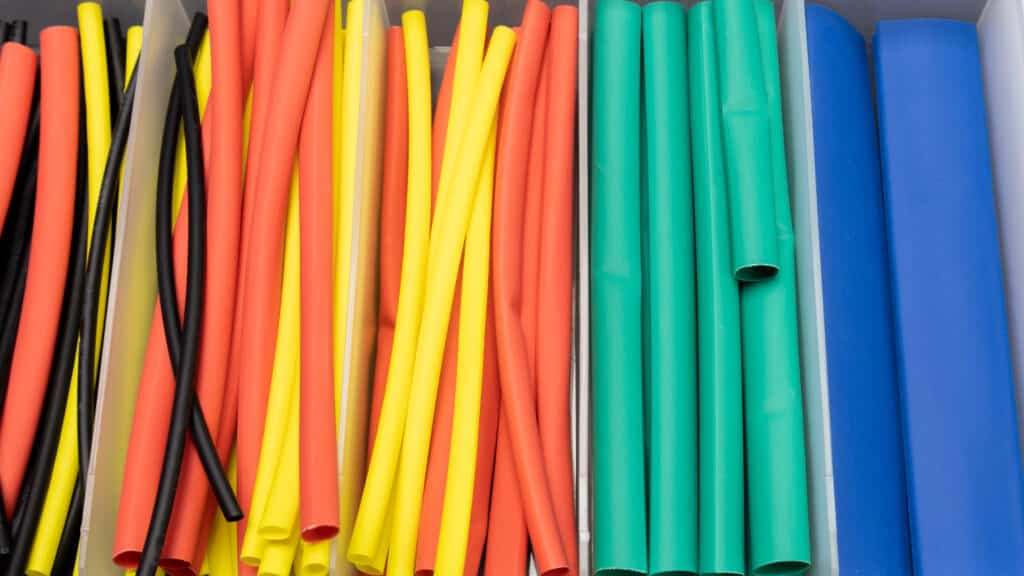So what makes it so unique? Here’s what you need to know.
The Science Behind Electrical Tape
When working with electrical wiring and phasing, it is necessary to use resistant materials to the possible conditions involved in electrical environments. The main ingredient behind electrical tape is polyvinyl chloride (PVC). You might recognize this material from common plumbing pipes and other household materials.
The other important aspect of electrical tape is its non-corrosive and rubber-based adhesive. It is the adhesive and backing that allow the tape to snugly wrap around wires and cables and provide the insulation necessary. It is the elasticity and flexibility that make electrical tape special. Regular tape or duck tape does not contain this important property. At the same time, duck tape has cloth fibers that make it susceptible to fire if exposed to the wrong conditions. It’s why duct tape should not be used for covering wires.
The Rigorous Testing Required for Electrical Tape
In industrial or professional settings, electrical tape is used as a tool. It has plenty of responsibility, as it is often protecting expensive wiring equipment and electrical cables. Because of this, it must therefore undergo rigorous testing to ensure it has the capacity to withstand certain environments. These tapes are considered UL Listed, which means they have been tested for performance and their ability to perform under certain conditions including hot temperatures, moisture, and sunlight/UV rays. These professional-grade tapes are also tested for certain physical properties that include their strength, ability to elongate, and adhesive capabilities.
What is UL listing?
Other types of tapes also undergo rigorous testing to meet the specific purpose for which they were designed. Foil tape is tested to ensure that it can fulfill its intended purpose and not cause any unintended consequences. So the UL listing is specific to the task. It’s why foil tape is not necessarily the right tape for bundling wires or cables. Electrical tape is designed to withstand conditions and environments in electrical situations.
The Distinct Benefits of Electrical Tape
To the naked eye, it may seem that electrical tape is just like any other. The tape, however, is designed to withstand pressure and insulating material that conducts electricity. A big part of its mission is to prevent sparks or electrical current from flying into other cables or cable bundles and causing a short or an electrical fire.
So let’s sum up some of the benefits of this tape:
-
Protects cables and wires
-
Resistant in specific conditions
-
Prevents electrocution or shorts
-
Comes in different colors
-
Long-lasting elasticity
-
Protects from condensation and moisture
-
Resists corrosive acids
The Art of Electrical Tape Wrapping
So once you know you must use electrical tape, here are a few tips on how to make the most of it. Below are a few pro tips on how to make the most of your tape.
-
Choose the correct grade for the task at hand. Depending on the conditions the tape will be exposed to, it’s important to gauge the right grade. If you’re working in particularly cold conditions, it should be a consideration. Pay attention to the min and max temperature ratings.
-
Apply properly to add layering. The application of the tape should involve purposeful layering called half-lap. This creates a double layer of tape and offers more protection. Add thickness to the process by using a half-lap process and adding extra protection.
-
Stretch while wrapping. The purpose of the tape is a snug wrap. Creating effective insulation means creating a bit of tension as you wrap and as you apply the tape. If it is applied too loosely, it will not function properly and will not have the proper insulation. For example, when using electrical tape as part of your cable management, you want to make sure that there is some tension when wrapping so that it provides the necessary stability to the unit but also the insulation intended.
-
Choose Quality Brands. Like so many things in the world of cable management and technology solutions, quality materials make all the difference. Electrical tape does have a shelf life and that tends to be about five years. The five-year number applies to even the best brands out there. So if you find yourself buying a bulk of electrical tape that is on clearance or on sale, make sure to consider how old that tape might be. This is why you should purchase from trusted stores and stay away from buying way more than you need at one time, or it might end up sitting on the shelf too long.
Another good piece of advice is to stay away from using electrical tape as a substitute for wire nuts. Avoid using this tape as a permanent solution as a connection insulator. It can create a fire hazard, since —with time— it would compromise a strong connection as the tape loosens.
Get the Right Materials For Your Cable Management Solutions
Here, at HST Cable Management, we specialize in products designed for electrical applications and solutions. For quality work and performance, you need long-lasting quality materials. We take care of your electrical tape needs.
Want to learn more about the cable management solutions we offer? Call HST today.





